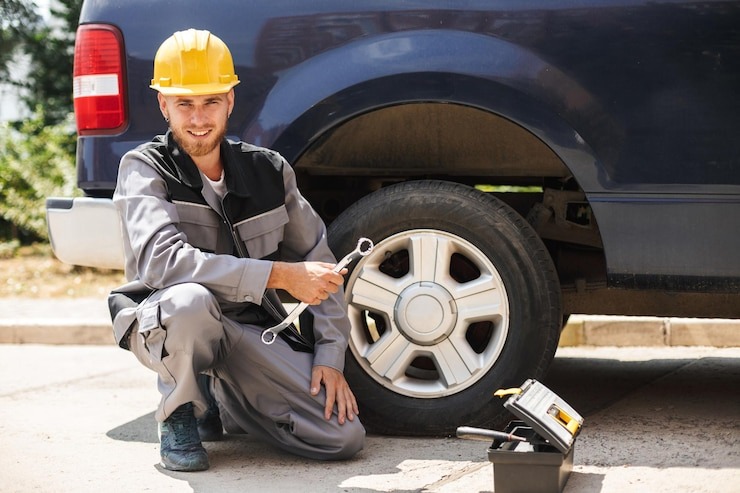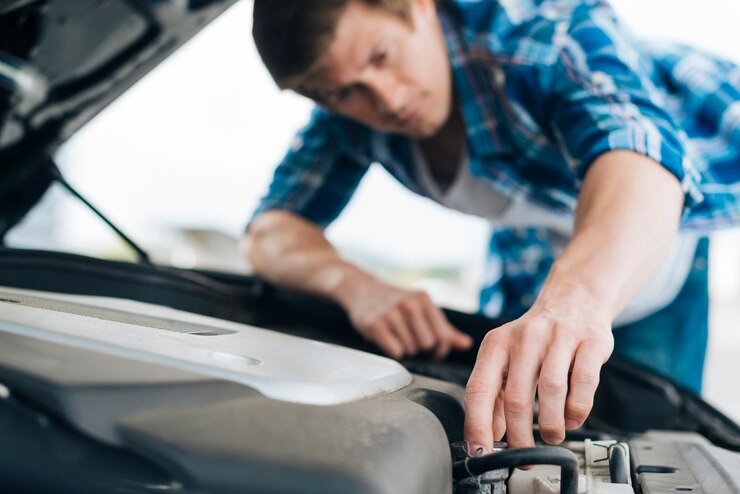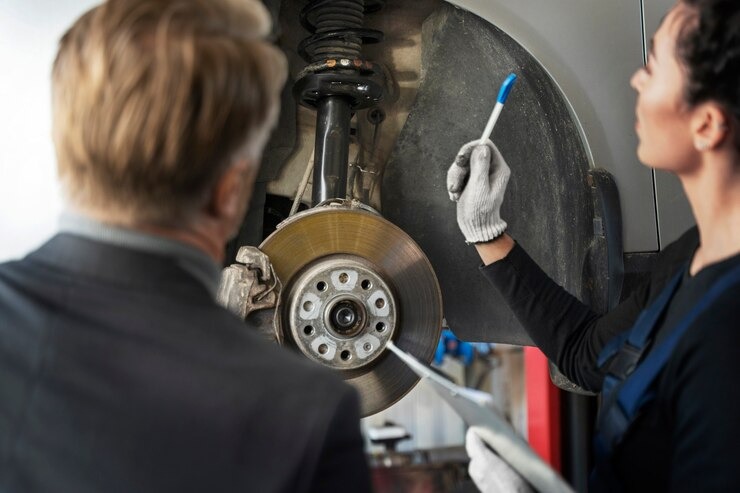Setting off on a road trip can be an enjoyable adventure for the whole family and one that often requires relatively little planning compared to other modes of transport. From long scenic highways overlooking diverse natural landscapes to coastal escapes offering stunning vistas and a sense of serenity, the choice of destination is down to the driver.
Before embarking on your next vehicle-based voyage of discovery, it is essential to ensure your car is up to the challenge. A road trip will involve driving long distances where you may encounter diverse terrain, adverse weather conditions, and a whole host of other hazards that can lead to a breakdown, accident, or collision with another vehicle. To learn more about the auto collision repair process, you can check here.
By preparing your car beforehand, you can ensure it is successfully able to meet these tests, allowing you to get the most out of your experience. To help you get organized, this article has outlined some key tasks to tend to to make sure your car is road trip-ready.
Tire Checks

The condition of your tires is crucial for the safety, comfort, and performance of your vehicle. By carrying out an inspection of your tires you can make sure they are up to job and can meet the demands of an arduous journey on the road.
Make sure there is adequate tread on your tires to provide your car with the traction and control it needs. This is especially important in wintery weather conditions where ice or snow can greatly reduce grip and increase the risk of your car losing control and skidding or crashing with another vehicle.
A tire inspection should also look out for any signs of wear and tear which could potentially affect the safety and performance of your car. This might include cracks, bulges or blisters in the tires or uneven wear which can highlight other issues such as wheel misalignment or problems with the suspension.
The air pressure of your tires should also be checked to ensure they meet the manufacturer’s requirements. Failure to do so can compromise the handling and performance of your car, lower its fuel efficiency and increase the risk of blowouts.
While it is not a legal requirement, you should always carry a spare tire in the trunk of your car in case of a puncture. This is especially so when going on a road trip. The spare should be kept properly inflated to the recommended pressure and checked for any signs of damage before leaving home. Along with the spare tire, make sure your car also has the necessary equipment such as a jack, lug wrench and torch, to make any tire changes with ease.
Fluid Checks

A car contains a variety of fluids which play a key role in powering and optimizing its performance. For a trouble-free road trip, make sure the following fluids are all adequately topped up or changed before leaving home:
- Engine oil: the lifeblood of your car engine, this oil keeps the engine and its components well lubricated and friction-free.
- Brake fluid: this is needed for the smooth, safe and proper functioning of your car’s braking system.
- Radiator fluid: also known as coolant, this fluid ensures the engine does not overheat and protects it from corrosion.
- Transmission fluid: this fluid keeps the automatic or manual components of your car’s transmission system lubricated, ensuring seamless gear changes.
- Power steering fluid: this fluid reduces the effort required to steer the car, allowing for a smooth and easy driving experience.
- Windshield fluid: by keeping the windshield clean from bugs, dirt, and debris this fluid helps maintain clear driver visibility and overall safety.
From a well lubricated engine and effortless steering to responsive brakes and clear windshield visibility, maintaining the fluids in your car will help minimize the chances of a breakdown and ensure your vehicle is operating safely and efficiently throughout your journey.
Battery and Brakes

Your car battery is the powerhouse that kick-starts your journey and ensures you have sufficient power throughout. It is, therefore, vital to check this key car part before you head off on your road trip.
You can check the health of your car battery by conducting a simple test to measure its voltage. To do this, you will need a multimeter, connecting the red lead to the battery’s positive terminal and the black lead to the negative terminal. A healthy, fully charged car battery should give a reading between 12.6 and 12.8 volts. When carrying out this test, it’s also advisable to inspect the car battery for any signs of corrosion, leaks, damage to the terminals or other issues which could signify the need for a replacement.
Your brakes should also be in good working condition for your road trip. You can test the responsiveness of your brakes beforehand by ensuring the brake pedal feels firm when pressed down against your foot. Also, pay attention to any unusual sounds such as squealing, screeching, or grinding when the brakes are applied. These sounds can indicate issues with the car’s braking system which can compromise its safety and overall performance.

Finally, make sure to inspect the condition and thickness of your brake pads by performing a visual check in-between the wheel spokes. As a general rule of thumb, the brake pads should be replaced when they get down to 1/8 inch or 3.175 mm. Some cars have brake pad indicators fitted which measure the thickness of the brake pads and signal when they have worn down to a certain level. At this point a light on the dashboard will let the driver know they need replacing. Depending on the make and model of your car you may need to carry out a brake pad inspection manually or rely on its in-built warning system.
By carrying out the steps outlined you can ensure your car has been adequately inspected and is ready for its road trip, allowing you to set forth on your journey with greater peace of mind, confidence and comfort.

